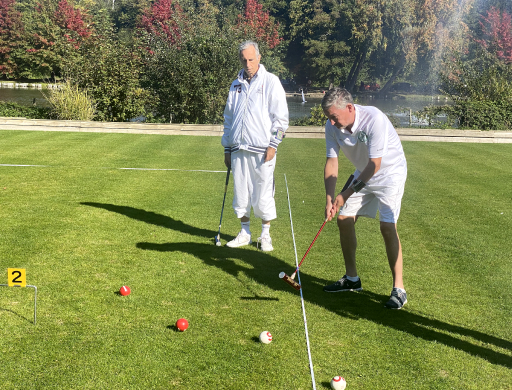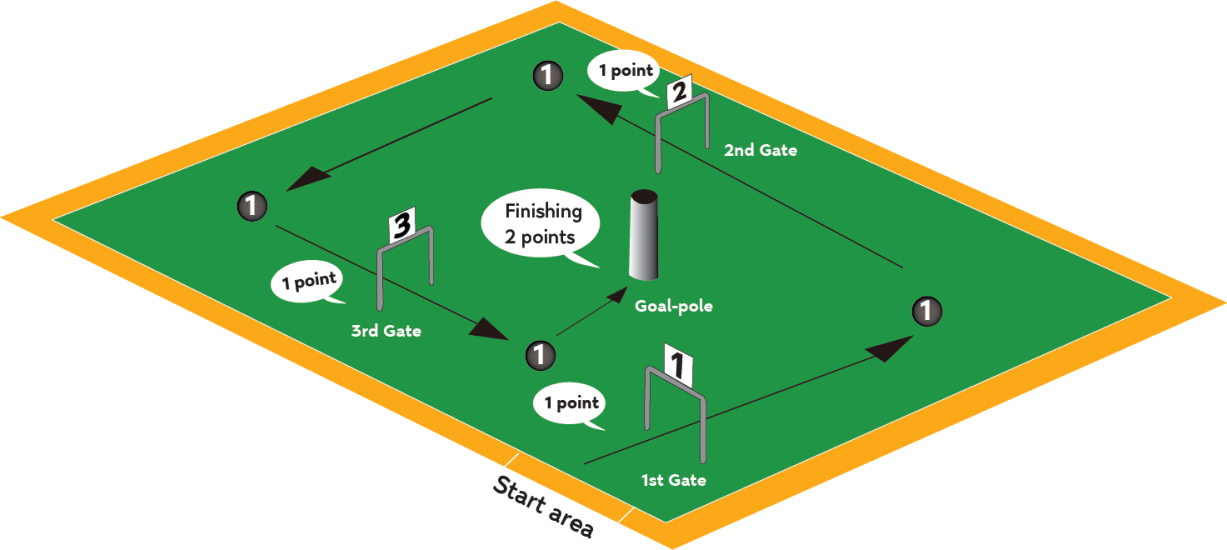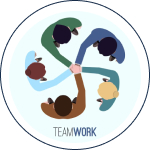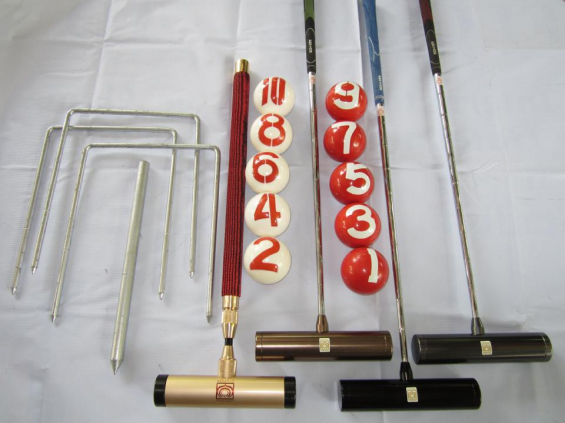About Gateball
About Gateball

What is Gateball?
It is a team sport that can be played by individuals of all ages and skill levels, and is known for being both physically and mentally challenging. It requires precision, strategy, and teamwork, making it a popular pastime for those looking to stay active and engage in friendly competition.

What is Gateball?
It is a team sport that can be played by individuals of all ages and skill levels, and is known for being both physically and mentally challenging. It requires precision, strategy, and teamwork, making it a popular pastime for those looking to stay active and engage in friendly competition.

in 1947

Mallet sport like
Croquet

For all ages
and gender

Involves strategy
and teamplay
Object of the
Object of the
Game

Each team tries to get its own balls to pass through as many gates as possible and hit the goal post (‘Agari’).


Each team tries to get its own balls to pass through as many gates as possible and hit the goal post (‘Agari’).

You win a point by passing a gate in the right sequence, and also have the right to “stroke” again. One point is given for every gate the ball passes in order, and two points for then hitting the goal post, for a total of five points for a finisher.

You win a point by passing a gate in the right sequence, and also have the right to “stroke” again. One point is given for every gate the ball passes in order, and two points for then hitting the goal post, for a total of five points for a finisher.
To decide the winning team, each player’s scores are totalled at the end of the game, and the team with the higher score is declared the winner


To decide the winning team, each player’s scores are totalled at the end of the game, and the team with the higher score is declared the winner
How to play
Visit the following link to know more
about how to play Gateball
Visit the following link to know more about how to play Gateball
Equipment and Items
Equipment and Items
Benefits about
Gateball
Benefits about
Gateball

Gateball is easy to learn and can be played by people of all ages and skills levels, making it a popular sport in many countries

It is a physical game that provides moderate exercise and helps improve hand-eye coordination, balance and agility

Gateball is a team sport that encourage players to work together and build camaraderie, making it a great way to meet new people and make friends

It requires strategy, concentration, and teamwork, making it a mentally engaging and challenging sport

Gateball is easy to learn and can be played by people of all ages and skills levels, making it a popular sport in many countries

It is a physical game that provides moderate exercise and helps improve hand-eye coordination, balance and agility

Gateball is a team sport that encourage players to work together and build camaraderie, making it a great way to meet new people and make friends

It requires strategy, concentration, and teamwork, making it a mentally engaging and challenging sport

Gateball isn’t just a game; it’s a way of life. It teaches you how to think clearly and fast, manage your stress and time, and communicate effectively.

If you play in a team, teamwork is an essential ability to have during the game.

Gateball, like golf, is a very sociable sport that allows you to meet people from many cultures and countries.

It’s great for business partners, but it’s also great for families since it can bring people of all ages together

Gateball isn’t just a game; it’s a way of life. It teaches you how to think clearly and fast, manage your stress and time, and communicate effectively.

If you play in a team, teamwork is an essential ability to have during the game.

Gateball, like golf, is a very sociable sport that allows you to meet people from many cultures and countries.

It’s great for business partners, but it’s also great for families since it can bring people of all ages together
History
History
Gateball first became popular in the late 1950s when a physical education instructor introduced gateball to the women’s societies and senior citizens’ clubs of Kumamoto City. In 1962, the Kumamoto Gateball Association was formed and established a local set of rules. This version of the game became known nationally when it was demonstrated at a national fitness meet in Kumamoto in 1976. Shortly afterwards gateball’s popularity exploded as local government officials and representatives of senior citizens’ organisations introduced the sport around the country.[1]
In 1984, the Japanese Gateball Union (JGU) was founded. Under the leadership of its inaugural chairman, Ryoichi Sasakawa, the JGU developed a unified set of rules and organised the first national meet. The following year, the JGU joined with five countries and regions, China, Korea, Brazil, United States of America and Chinese Taipei (Taiwan), to form the World Gateball Union (WGU). The WGU has since been joined by Bolivia (1987), Paraguay (1987), Peru (1987), Argentina (1989), Canada (1989), Singapore (1994), Hong Kong (1998), Australia (2003), Macao (2005), Philippines (2012) and Indonesia (2013) and since a few years in some countries in Europe like Belgium, Switzerland, France and Germany.]


Gateball first became popular in the late 1950s when a physical education instructor introduced gateball to the women’s societies and senior citizens’ clubs of Kumamoto City. In 1962, the Kumamoto Gateball Association was formed and established a local set of rules. This version of the game became known nationally when it was demonstrated at a national fitness meet in Kumamoto in 1976. Shortly afterwards gateball’s popularity exploded as local government officials and representatives of senior citizens’ organisations introduced the sport around the country.[1]
In 1984, the Japanese Gateball Union (JGU) was founded. Under the leadership of its inaugural chairman, Ryoichi Sasakawa, the JGU developed a unified set of rules and organised the first national meet. The following year, the JGU joined with five countries and regions, China, Korea, Brazil, United States of America and Chinese Taipei (Taiwan), to form the World Gateball Union (WGU). The WGU has since been joined by Bolivia (1987), Paraguay (1987), Peru (1987), Argentina (1989), Canada (1989), Singapore (1994), Hong Kong (1998), Australia (2003), Macao (2005), Philippines (2012) and Indonesia (2013) and since a few years in some countries in Europe like Belgium, Switzerland, France and Germany.]